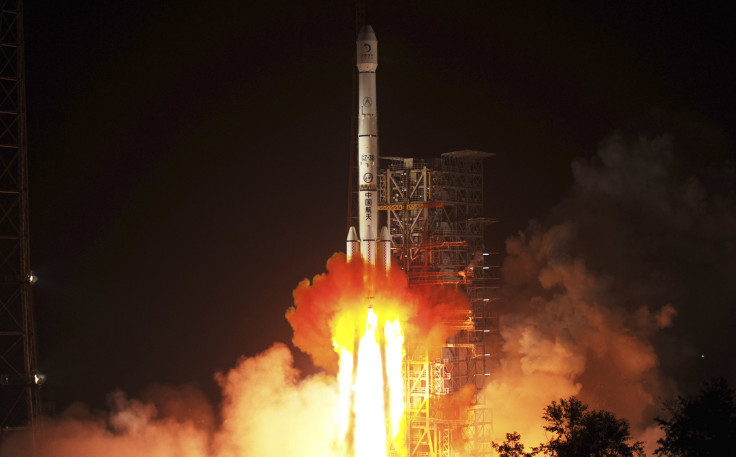Chinese Long March Rocket Fails To Reach Space, Brazilian Satellite ‘Was Not Positioned In Orbit’

A satellite operated by Brazil never made it into space after its Monday morning launch from a location in China. According to Reuters, the rocket carrying the satellite failed to reach its planned orbit and most likely came crashing back to Earth.
The satellite was part of the China-Brazil Earth Resources Satellite, or CBERS, program. Monday’s launch was the fourth in a series of satellite launches intended for monitoring land use in Brazil. Brazilian leaders want to make the country’s space program less dependent on foreign space equipment, including from the U.S. and Europe. The government also wants to better manage its borders and natural resources, including its forests, minerals and agriculture.
Although Brazilian media initially reported a successful launch, later reports clarified that the rocket failed to deliver the satellite to space. No specific information was provided beyond news that the satellite never reached its intended orbit and stopped sending signals back to ground control, probably having fallen back to Earth.
"There was a failure in the launch vehicle during flight and the satellite was not positioned in the right orbit. Preliminary evaluations suggest CBERS-3 has returned to Earth," the Brazilian government said in a statement, according to Reuters. "Chinese engineers responsible for the construction of the launch vehicle are evaluating the causes of the problem.”
The observation satellite, called CBERS-3, cost Brazil about $250 million, according to Space Flight Now. The 2.3-ton satellite took off from a satellite launch center in Taiyuan, about 470 miles from Beijing. The satellite was strapped to a 15-story Long March 4B rocket, the same kind used in previous commercial launches.
According to Space Flight Now, the rocket and its high-priced passenger should have reached orbit 12 minutes after launch.
NASA Space Flight reported that Monday’s satellite launch marked the 200th orbital launch by the Chinese. Had the satellite reached orbit, it would have been China’s 188th successful rocket launch.
Brazil and China agreed to the joint satellite launch in 2002. Earlier this year, an official from the Chinese space program said China wants a larger share of the global commercial satellite launching business. According to The Associated Press, China currently controls 3 percent of the satellite launch market, but wants to increase that to 15 percent by 2020.
Officials are still investigating what caused the rocket to misfire on Monday. China and Brazil are working on another joint satellite launch, CBERS-4, slated for 2015.
© Copyright IBTimes 2024. All rights reserved.












